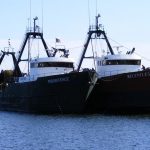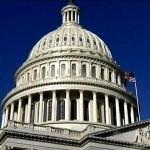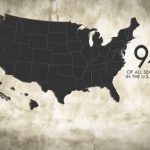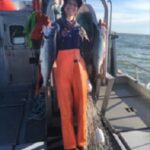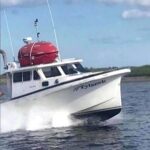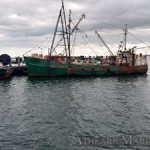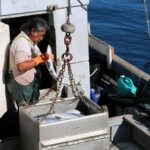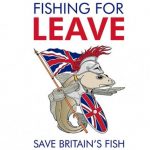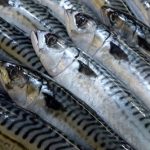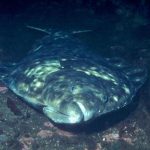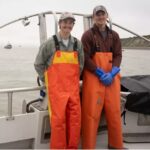Tag Archives: CARES Act
Fishermen Feeding Mainers awarded $750K in federal funds
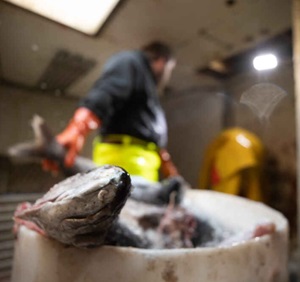 Fishermen Feeding Mainers, a program of the Maine Coast Fishermen’s Association, will be receiving $750,000 in federal funding thanks to an appropriations request submitted by Sen. Susan Collins (R-Maine) and Sen. Angus King (I-Maine). The successful request will provide funding for the program through Good Shepherd Food Bank of Maine. The Fishermen Feeding Mainers program began in October 2020 in response to the collapse of local markets and rising food insecurity in Maine. Initially funded by an anonymous foundation, the Maine Coast Fishermen’s Association partnered with Good Shepherd Food Bank to distribute donated fish to food pantries, meal sites and additional hunger-relief organizations located throughout the state. more, >>CLICK TO READ<< 06:25
Fishermen Feeding Mainers, a program of the Maine Coast Fishermen’s Association, will be receiving $750,000 in federal funding thanks to an appropriations request submitted by Sen. Susan Collins (R-Maine) and Sen. Angus King (I-Maine). The successful request will provide funding for the program through Good Shepherd Food Bank of Maine. The Fishermen Feeding Mainers program began in October 2020 in response to the collapse of local markets and rising food insecurity in Maine. Initially funded by an anonymous foundation, the Maine Coast Fishermen’s Association partnered with Good Shepherd Food Bank to distribute donated fish to food pantries, meal sites and additional hunger-relief organizations located throughout the state. more, >>CLICK TO READ<< 06:25
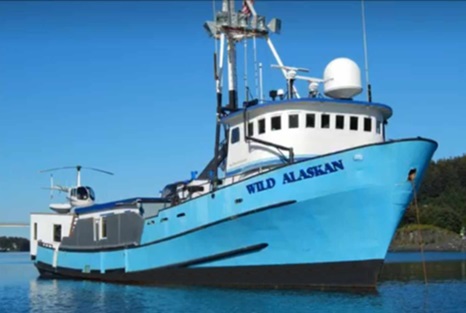
Sinking of the Wild Alaskan – Document Dump #46
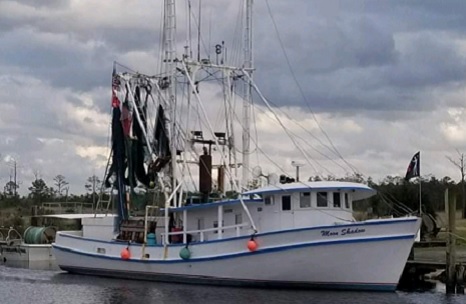
South Carolina Shrimper Finds Smooth Sailing with Help of EDA Revolving Loan Fund Program
James Bradley is a second-generation commercial fisherman from South Carolina. He’s the owner of Bradley’s Commercial Fishing, a family-owned business on St. Helena Island. The company provides shrimp and other seafood items to local restaurants. Fishing has been a proud tradition for the Bradley family, which has been in the seafood business for more than 100 years. An able seaman who learned how to shrimp and fish from his father, Bradley served as captain of the company’s shrimp trawler, F/V Bradley’s Pride, which would sail the Atlantic off the South Carolina coast. It served as the centerpiece of Bradley’s company and its main source of revenue. After more than five decades in business, however, he realized it was time to buy a new boat.>click to read< 19:46
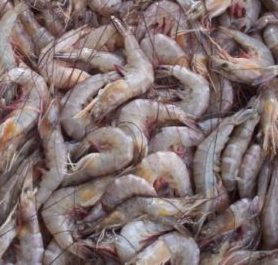
$4.2 million federal grant seeks to help Louisiana seafood processors recoup COVID losses
Louisiana will receive a $4.2 million federal grant to help seafood processors recover losses sustained during the ongoing COVID pandemic. It’s part of a $50 million allocation from the U.S. Department of Agriculture to about two dozen coastal states announced Monday. The aid comes from a $2.3 trillion bipartisan bill approved by Congress and then President Donald Trump in December 2020. It combined $900 million in COVID stimulus money with $1.4 trillion to fund various federal agencies. The USDA has not detailed specifics about how the latest aid will be distributed to seafood processors. >click to read< 08:32
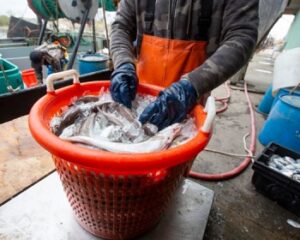
N.J. fishing industry to get another $9.5M for Coronavirus relief
An incoming tide of federal dollars aims to lift a few boats, bait shops and seafood markets in the Garden State. New Jersey is set to receive another $9.5 million in COVID-19 relief money for the state’s fishing industry,,, The influx of cash comes from the $900 billion relief package passed by Congress and signed by former President Donald Trump in December. The money will be given to New Jersey by the National Oceanic and Atmospheric Administration, after the state Department of Environmental Protection gets a spending plan for the money approved. The DEP plans to submit its plan in coming days. >click to read< 17:50
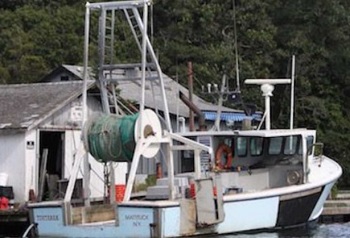
New York: $6.7 million in Coronavirus relief to marine fishing industries
Governor Andrew M. Cuomo announced $6.7 million in relief aid is being distributed starting today to New York’s seafood, marine commercial, and for-hire fishing industries after excessive business losses due to the COVID-19 pandemic. New York State will distribute an additional $5.7 million in the coming months, for a total of $12.4 million, through the Marine Fisheries Relief Program, which administers federal funding provided by the Coronavirus Aid, Relief and Economic Security Act. >click to read< From ny.gov, >click to read< 11:40
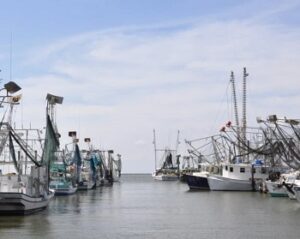
Garret Graves calls CARES Act funding for Louisiana fisheries a ‘slap in the face’
U.S. Congressman Garret Graves released the following statement regarding the $12,477,165 allocated to Louisiana fisheries to mitigate the economic hardships accrued by the COVID-19 pandemic. However, the Louisiana Sixth District Congressman is “baffled” only 4.9 percent of the available funds was provided to Louisiana despite being one of the top fisheries states in the nation. Last year, under the Coronavirus Aid, Relief, and Economic Security Act (CARES Act), Louisiana received $14.7 million of the $300 million allocated. Rep. Graves’ statement >click to read< 21:00
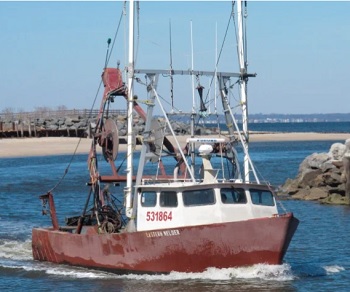
NJ Fishing Community Says Coronavirus Aid Helped Keep Them Afloat
With New Jersey’s commercial fishing industry about to receive a second round of federal coronavirus aid, boat owners and those who run fishing-related businesses say the extra money is helping keep them afloat amid a sea of red ink. The state’s fishing industry received $11 million last March under the CARES Act, an early aid bill passed in response to the COVID-19 outbreak. And it should get roughly the same amount under a second bill passed by Congress in December.,, U.S. Rep. Frank Pallone Jr. said Monday. Pallone held a news conference Monday at the Belford Seafood Cooperative in Middletown with boat owners and those who run related businesses. >click to read< 10:24
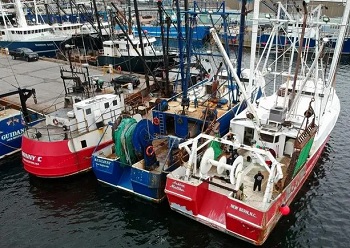
CARES Act relief funds for New Bedford fisheries topped $5 million
In May 2020, the U.S. Department of Commerce announced an allocation of $300 million for fisheries assistance. According to the National Oceanic and Atmospheric Administration, Massachusetts received the third-highest amount in funding with about $28 million. Alaska and Washington received the most with $50 million each and Maine was fifth with about $20.3 million. New Bedford alone received about $3.8 million, or approximately 13.6% of the state’s allocation. The funds provided much-needed relief for an industry seeing up to a 49% drop in landings revenue,,, >click to read< 08:12
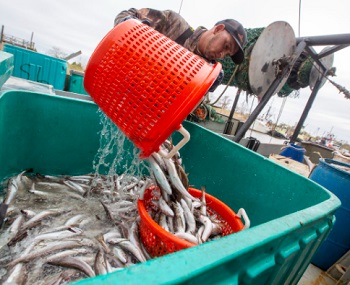
Coronavirus relief: N.J.’s sinking fishing industry nabs $11M life raft from state
Nearly a year after being approved by federal lawmakers, financial relief is being handed out to New Jersey’s battered fishing industry. Gov. Phil Murphy and the New Jersey Department of Environmental Protection announced Friday that $11.3 million in grants are being distributed to Garden State fishermen, and the businesses that support them. The relief money was part of the $2 trillion CARES Act which was passed by Congress and signed by former President Donald Trump in March. >click to read< 09:47
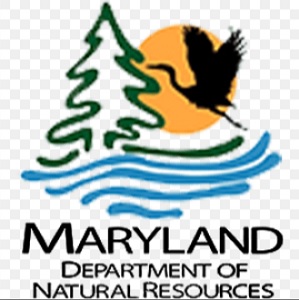
CARES Act Applications Now Available for Maryland Fishing Industry – Deadline to Apply is Feb. 28, 2021
The Maryland Department of Natural Resources announces that applications remain available through February 28, 2021 for economic relief funds for the commercial seafood industry through the federal Coronavirus Aid, Relief, and Economic Security Act (CARES), for those who have been affected by the COVID-19 pandemic. The application will be available to eligible members of the seafood industry on the Maryland OneStop website. The deadline to apply is Feb. 28, 2021. >click to read< 09:27

A Final 2020 DMR Update from Commissioner Pat Keliher
As 2020 slowly draws to a close, I’d like to share with you one last monthly update on the work of Maine DMR before we close the books on a year of challenges. Pat. New England Fishery Management Council actions,,, DMR has been auditing the data collected through the CARES Act application process,, Additional coronavirus relief has been approved by Congress however it is much too early,,, much more, >click to read< 12:20

Cuomo Announces $6.7 Million in Cares Act Funding to Assist New York’s Marine Fishing Industry – Application Period Opens Dec. 1
Governor Andrew M. Cuomo today announced $6.7 million in federal funding is available from the Marine Fisheries Relief Program established by the Coronavirus Aid, Relief and Economic Security, or CARES, Act to assist New York’s marine fishing industry following extensive economic losses resulting from the COVID-19 pandemic. Eligible seafood, commercial marine fishing, and marine recreational for-hire fishing businesses will be able to apply for the funding beginning Dec. 1, to help provide financial relief for this hard-hit and crucially important industry. >click to read< 09:42
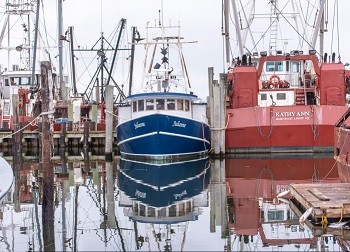
Varied New Jersey Fishing Businesses May Apply for Grant for 35 Percent Loss in 2020
Since the pandemic began, fishing revenue in New Jersey is down about 35 percent, according to the N.J. Department of Environmental Protection. Viking Village commercial dock General Manager Ernie Panacek said, “All the commercial entities will be awarded something … it depends on each individual case” and may not be “a lot,” he said. “We deferred some (fishing) trips away from March and April because of the business slowdown. I kept everybody working here, but we lost revenue because we lost trips and limited the trips, made them smaller.” Fortunately, there are always consumers attracted to a quality product. If they weren’t able to get it inside a restaurant, a number of consumers bought it anyway. >click to read< 13:04
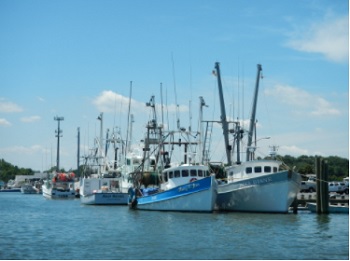
CARES Act Funding Available for Maryland Fishing Industry
The Maryland Department of Natural Resources announces applications will be available Nov. 4 for economic relief funds for the commercial seafood industry through the federal Coronavirus Aid, Relief, and Economic Security Act (CARES), for those who have been affected by the COVID-19 pandemic. The application will be available to eligible members of the seafood industry on the Maryland OneStop website. The deadline to apply is Feb. 28, 2021. >click to read< 16:20
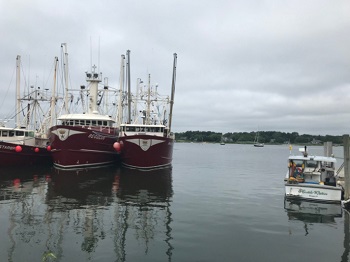
The CARES Act: Lengthy Process, Little to Show for Connecticut Fisheries
Nearly seven months after the Coronavirus Aid, Relief and Economic Security (CARES) Act was signed into law, eligible fisheries and related businesses can apply for $1.8 million in economic aid through the CARES Assistance to Fishery Participants (CAAFP) program. Connecticut is part of the Atlantic States Marine Fisheries Commission (ASMFC), which also includes Maine, New Hampshire, Massachusetts, Rhode Island, New York, New Jersey, Pennsylvania, Delaware, Maryland, Virginia, North Carolina, South Carolina, Georgia, and Florida. From the $300 million, 31 entities received funding. Connecticut’s allocation was $1.8 million, the 9th lowest on the list. Rhode Island received $3.3 million,,, >click to read< 09:58
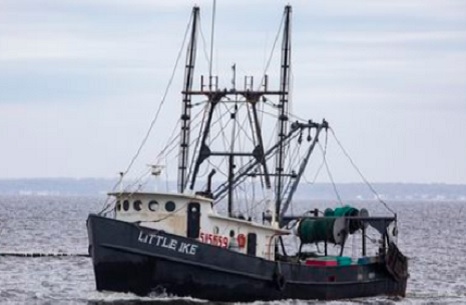
It’s Important! N.J. cleared to provide $11M in relief for sinking fishing industry
Months after the pandemic rocked New Jersey’s fishing industry, millions of dollars in federal coronavirus relief is set to finally flow to the anglers that need it. The National Oceanic and Atmospheric Administration has approved New Jersey’s plan to spend $11.3 million in federal fisheries relief, U.S. Rep. Frank Pallone, D-6th Dist., announced Tuesday. The approval allows state authorities to begin distributing the money, which was allocated to the state as part of the $2 trillion CARES Act that became law in March. >click to read< 09:25
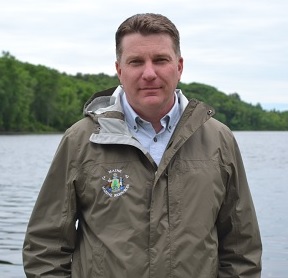
An Update from Commissioner Keliher
Dear Industry Member, I’m reaching to share what’s been happening recently at DMR. It’s been a busy summer. CARES Act – Negotiations with NOAA on our CARES Act spend plan have finally been completed.,, Soon, we will be reaching out to you by mail and email with information on the application process. USDA Trade Relief, Federal Whale Rules, Aquaculture, Marine Patrol, and more. Like I said, it’s been a busy summer. But, despite the ongoing challenges of Covid-19 we have established remote operations and the work continues. We will keep sending these updates until we can gather in-person. Until then, stay safe. Pat. >click to read< 12:21
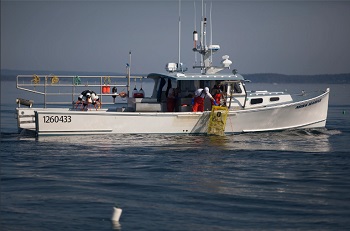
This lobster season they expected hell, but got high water
Captain Nick Muto of Chatham, Massachusetts, expected this summer’s lobster fishing to be a disaster. With restaurant shutdowns and other supply chain issues, he was expecting to have to hustle hard to get good prices for his ocean delicacies. But he was pleasantly surprised. “I hate to say it out loud, but things are right now looking very good,” he said. Like many fishermen, Muto shifted to selling more lobsters directly into local markets, whether to restaurants or even right off the docks to consumers. Patrice McCannon, executive director of the Maine Lobstermen’s Association, said government relief programs like the CARES Act and Payment Protection Program have helped harvesters stay afloat. >click to read< 18:11
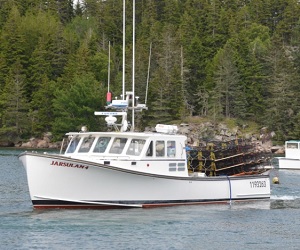
CARES Act: Lobstermen may get up to $50 million in pandemic relief funds
Whatever the relationship between China and the United States — particularly the lobster industry — may be, Maine lobstermen are certainly living in interesting times. Last week, a scant two months before the upcoming presidential election, the U.S. Department of Agriculture announced that it  would soon release some $530 million appropriated by Congress last March under the CARES Act to assist the U.S. seafood industry and fishermen damaged by retaliatory tariffs. Those tariffs have been imposed primarily by China and the European Union on imports of U.S. live and processed seafood. >click to read< 16:58
would soon release some $530 million appropriated by Congress last March under the CARES Act to assist the U.S. seafood industry and fishermen damaged by retaliatory tariffs. Those tariffs have been imposed primarily by China and the European Union on imports of U.S. live and processed seafood. >click to read< 16:58
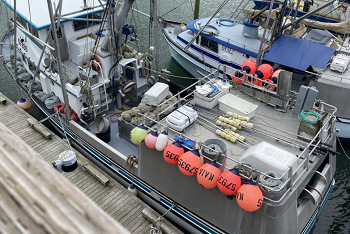
Alaska fishermen face ‘perfect storm’ of problems during Coronavirus pandemic, but state grants could help
On Friday, the Alaska Department of Commerce, Community and Economic Development announced that the COVID-19 small business grants program was being expanded. Starting Aug. 6, commercial fishermen across Alaska can apply for grants worth between $5,000 and $100,000. Before that date, fishermen were ineligible for help as they typically don’t have business licenses. Many in Alaska’s fishing industry need the assistance. Robert Venables, the executive director of Southeast Conference, said fishermen across the region had been reporting poor returns. “This year it’s been a perfect storm, the slump has continued. The catch is even worse than last year, by far,” Venables said. >click to read< 13:56
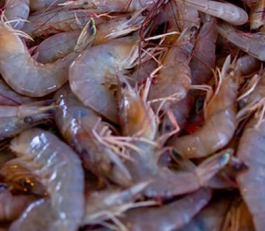
Wicker, Hyde-Smith, Palazzo Announce $30M in Aid for U.S. Shrimp Industry
The announcement comes after the Mississippi lawmakers sent a letter to USDA Secretary Sonny Perdue requesting that he use his authority to purchase and distribute Gulf seafood to those in need during the coronavirus pandemic. Recently-enacted legislation, including the Coronavirus Aid, Relief, and Economic Security (CARES) Act and the Families First Coronavirus Response Act, includes additional support for USDA programs that provide food to distressed communities. “Mississippi’s shrimp industry has been hit hard by COVID19, with many vessels having to stay tied to the dock due to collapsing markets. We are glad to hear the USDA is stepping up purchases of Gulf shrimp and applaud the hard work of our Congressional delegation to make it happen,” >click to read< 09:17

DMF begins process of distributing federal CARES Act relief to fishing and seafood industries
The Division of Marine Fisheries has begun the process to distribute federal disaster relief that Congress and the President approved to mitigate the financial impacts to marine fisheries participants that have suffered at least a 35% loss of revenue due to the ongoing pandemic. In the days ahead, some Massachusetts permit holders in certain sectors will be receiving mailed applications. In March, the CARES Act provided $300 million of aid for the seafood industry with $27.8 million coming to Massachusetts, the third highest of all coastal states. The funds were allocated among the states based on the relative contributions to the economy of four distinct sectors: commercial fishing, marine aquaculture, seafood processing, and for-hire (party and charter boats) fishing businesses. >click to read< 10:14
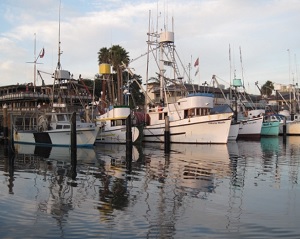
CARES Act: California Fisheries Relief Funding Soon to be Available for Select Sectors Affected by Coronavirus
Coastal and marine fishery participants – including licensed commercial fishermen, fish buyers, aquaculture businesses, charter boat owners and guides – who have experienced a loss of income due to the effects of COVID-19 may be eligible for federal relief funding disbursed through the California Department of Fish and Wildlife (CDFW). The funding is part of the federal Coronavirus Aid, Relief and Economic Security (CARES) Act. This more than $2 trillion economic relief package provides direct economic assistance for American workers, families and small businesses that have been impacted COVID-19. About $18 million in CARES funding was earmarked specifically for fisheries assistance in California. >click to read< 12:07
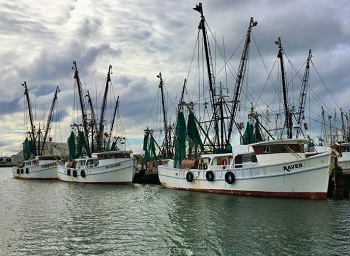
Florida fisheries wait for federal aid as prices take a deep dive – fisheries across the nation have experienced steep sales decline
Federal officials Wednesday defended the delay in releasing $300 million on fisheries assistance funding, including $23.4 million for Florida, saying the pandemic has set them behind in analyzing data to determine how much each fishery is due. Senators on the Commerce, Science, & Transportation Committee urged faster action to offset the impacts of COVID-19 on the seafood industry. Committee Chairman Sen. Roger Wicker, R-Miss., noted that fisheries across the nation have experienced up to a 90 percent decline in sales.,, In May, the CARES Act allocated $300 million for fisheries assistance funding. Florida received $23,447,815, according to the Atlantic States Marine Fisheries Commission. However, the National Oceanic and Atmospheric Administration has not approved the state’s plan. >click to read< 13:03
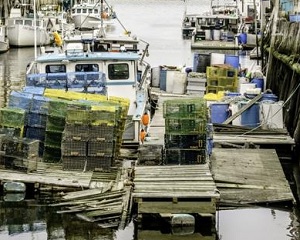
Maine lobstermen prepare for uncertain summer season, hoping for further federal relief
More than 1,300 lobstermen in Maine – about 1 in 3 – received forgivable loans through the Paycheck Protection Program (PPP), with the majority amounting to roughly $10,900.,, New data from the U.S. Small Business Administration shows that altogether, Maine’s lobster industry received roughly $24 million in PPP funding, the most given to any business concern in the state; dine-in restaurants, beauty salons, real estate, and home building received the next highest amounts. While the bulk of the fishing sector money – nearly $15 million – went to fishermen, some dealers, retailers and processors received loans between $150,000 and $1 million. >click to read< 17:49
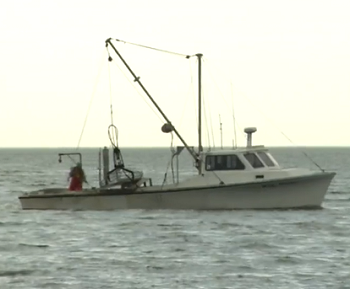
CARES Act grants available for watermen in Chincoteague
Watermen in Chincoteague can now apply for CARES Act funding. “It hurts. It’s hurt the seafood industry big time,” said waterman Eddie Watson. Mayor Arthur Leonard says the town has set aside $30,000 for up to six watermen. Those receiving the grants could possibly get $5,000 apiece. “What we’re doing is a very small step. I wish there was more that we could do. I know the federal government gave a lot of money. But that trickles down, so we are doing with what we have,” said Mayor Leonard. Watson says the money would be a huge help. video, >click to read< 11:45
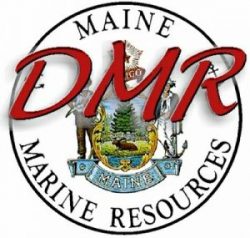
DMR Needs Your Correct Address Information to Distribute CARES Act Relief Funds
In May, the Maine Department of Marine Resources (DMR) notified you that Maine has been allocated $20 million in CARES Act relief funding to support the recovery of Maine’s commercial fishing, seafood, aquaculture, and charter fishing industries from the financial impacts of COVID-19. Following additional guidance from NOAA provided in June, DMR has been working on developing the “spend plan” for these funds, which must be approved by NOAA. DMR anticipates that we will be reaching out to all potentially eligible parties in August 2020. In preparation for that, we want to ensure that we have the most up-to-date contact information for all of our license holders. links, more information, >click to read< 16:59
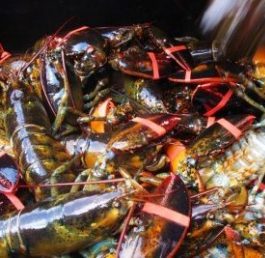
Maine: 1 in 3 Lobstermen got small Paycheck Protection Program loans
About $14.9 million in forgivable Paycheck Protection Program, or PPP, loans of less than $150,000 have been handed out to 1,358 Maine lobstermen, according to an analysis of newly released U.S. Small Business Administration data. That puts lobstermen ahead of full-service restaurants, real estate offices, beauty salons and home builders, which rounded out the top five Maine industries receiving small PPP loans. Maine’s $1.4 billion-a-year lobster industry – including those who buy, sell and process lobster as well as catch it – have received 1,495 forgivable PPP loans worth at least $24.2 million, so far. Fishermen got the lion’s share of the industry’s total PPP money, but only because they outnumber dealers, retailers and processors. Some dealers got loans of up to $1 million. >click to read< 07:15

Markey touts $15 million he steered to New Bedford’s North Terminal
Senator Ed Markey brought his senatorial campaign to New Bedford Friday afternoon, touting his efforts to secure waterfront infrastructure and fisheries disaster assistance funding for the city. Markey made the stop in the Whaling City as part of the launch of his statewide bus tour, the “Leads and Delivers Tour,” designed to spotlight the accomplishments the senator says he has made for the state on Capitol Hill. The focus of the stop at City Pier 3 was highlighting the $15.4 million in Department of Transportation funding to improve the New Bedford port’s infrastructure and the $28 million in fisheries disaster assistance from the CARES Act that Markey says he advocated for. >click to read< 17:47

































